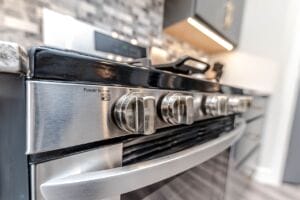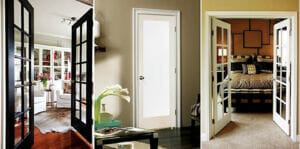Before starting any upgrades, it is crucial to evaluate the energy your home currently uses. An energy audit can assist in finding out where you are losing most of your power and decide on what improvements will be most effective. You can do this type of audit with the help of a specialist or by yourself using devices for monitoring energy at home. Knowing the places where energy is wasted in your house helps you decide on improvements that will make a big difference to reduce energy use and cut down on utility costs.
Improving Insulation and Sealing Air Leaks
To enhance the energy efficiency of your house, you must pay attention to insulation and sealing air leaks. Correct insulation keeps a steady indoor temperature, lessening the necessity for heating and cooling. Concentrate on insulating your loft, walls, and floors because these zones are more likely to lose energy. Also, when you close gaps near windows, doors and similar places it stops drafts from coming in and maintains the conditioned air within. Even slight enhancements in insulation and sealing of air can result in noticeable energy preservation as well as improved coziness at your house.
Upgrading Windows and Doors
Windows and doors are very important for how efficiently your home uses energy. If they are old or not well protected, these parts could be a big reason why you lose energy from inside the house. When you change to windows and doors that save energy, like ones with two or three layers of glass, they can help to decrease heat transfer. This means during winter it keeps more warmth inside your place while in summer it stops exterior hotness from getting in – making sure things stay cool indoors! Check out windows and doors which have high energy rating and low U-values, as these show better insulation performance. You might also think about getting help from experienced Toronto roofers to make sure any roof windows or skylights are put in correctly for maximum energy efficiency.
Investing in Energy-Efficient Appliances
One more good method to improve your house’s energy efficiency is by changing old appliances that use too much power with new versions that are energy-saving. Appliances like fridges, dishwashers and washers are used every day and may make up a big part of how much energy you use. When shopping, select appliances with the ENERGY STAR mark which shows they reach or go beyond efficiency standards for using power. Even if the first expense is more, the future savings in your energy costs are a good enough reason to put money into this.
Upgrade Heating and Cooling Systems
Typically, heating and cooling make up the bulk of residential energy use. Upgrading to more efficient systems can cut your energy use dramatically. Consider putting in high-efficiency furnaces, heat pumps, or air conditioning units that are properly sized for your home. This allows the full potential of the system by maintenance, cleaning, or replacing filters regularly. Think about a programmable thermostat to create a better sense of control over your heating and cooling—reducing energy waste when you’re not home as well.
Integrating Renewable Energy Sources
Renewable house energy is a brilliant way to go for both energy efficiency and a weaker dependency on fossil fuel. For instance, solar panels would generate clean energy that will definitely cut your electricity bills. If you are living in an area with wind or geothermal potential, this is very much an option. Although the original installation will be expensive, different governments offer incentives or rebates for the installation of renewable energy units, making this a more affordable option in the long run.
This brings us to the area of lighting: you can make huge savings in energy here. Switching to energy-efficient bulbs using LED or CFL, it actually is pretty easy to cut your lighting energy by up to 80% compared with old conventional incandescent bulbs. Such bulbs also last longer, which means they do not require frequent changing, hence saving money over long periods of time. You may also want to consider installing the dimmer switches, motion detectors, or smart lighting systems that can be controlled by you in enhancing your total house energy saving.



